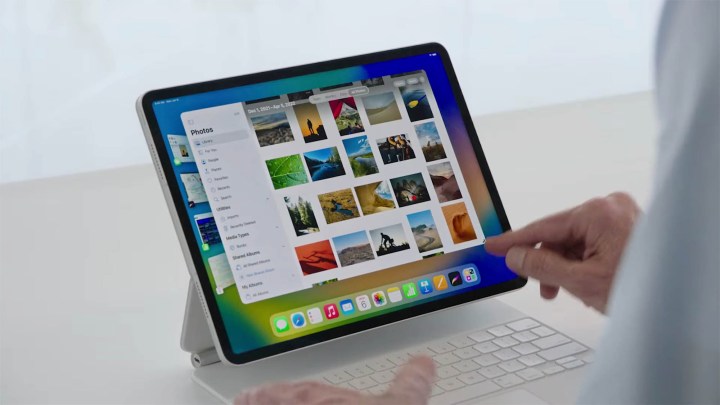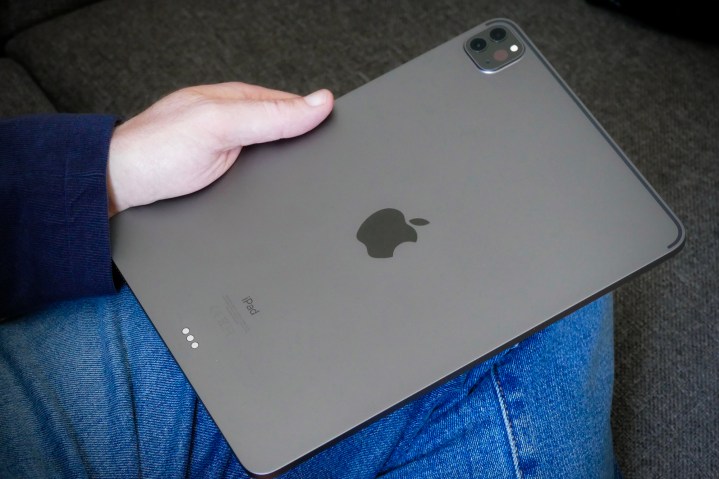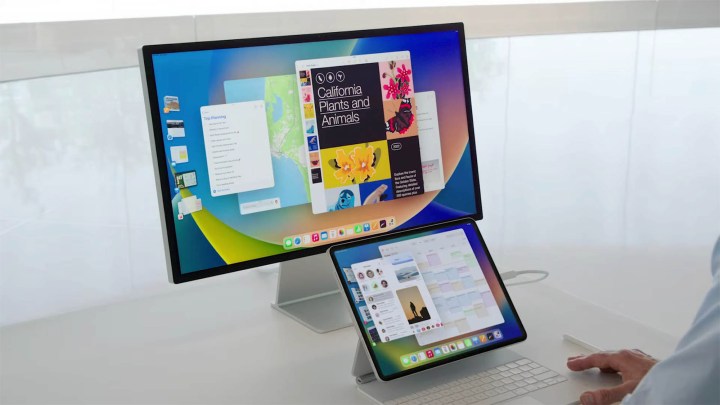It looks like older iPads won’t be left off the stage when Apple releases iPadOS 16 in a few weeks. Apple is extending its marquee Stage Manager multitasking system to any iPad Pro model released in the past four years.
Stage Manager is arguably the most significant change coming in iPadOS 16. but when Apple previewed the new iPad operating system at its June Worldwide Developers’ Conference (WWDC), it quickly became apparent that this feature would be exclusive to Apple’s M1-equipped iPads.

This wasn’t just a temporary oversight, either. Apple made it clear that this would be the company’s first significant M1-only feature. In a statement to Rene Ritchie, an Apple spokesperson described Stage Manager as “a fully integrated experience” that “requires large internal memory, incredibly fast storage, and flexible external display I/O, all of which are delivered by iPads with the M1 chip.”
Considering that the M1 chip is the same processor that Apple used to launch its first Apple Silicon MacBooks in 2020, it’s understandable that it’s capable of achieving levels of performance that Apple’s older A-series iPad chips can’t match. Still, with the first M1 iPad Pro models launching only a year earlier, many owners of older iPad Pro models felt left behind.
Stage Manager coming to more iPads
In a surprise turn of events, it appears Apple has relented on its M1 exclusivity for Stage Manager, bringing the feature to some prior generations of iPad Pro.
The news comes alongside the latest iPadOS 16 developer beta released earlier today, which adds support for the 2018 and 2020 iPad Pro models, both of which feature souped-up versions of Apple’s A12 Bionic chip — the same chip used in the 2018 iPhone XS and iPhone XR.

Specifically, the 2018 iPad Pro contained an A12X chip, an 8-core version of the A12 with more cache, and a 7-core GPU. The A12Z was virtually identical to the A12X, adding only one additional GPU core for a total of eight. Hence, the 2018 and 2020 iPad Pro models come in with nearly identical performance specs, meaning if Apple can bring Stage Manager to the 2020 iPad Pro, there’s no reason to exclude the 2018 model.
Older iPad Pro models are still being left behind, as they likely don’t have the chops for Stage Manager. They’ll run iPadOS 16 — all iPad Pro models remain supported, even the original 2015 version — but they won’t get Stage Manager.
Apple acknowledged the change in a statement to Engadget, where a company spokesperson said, “Customers with iPad Pro 3rd and 4th generation have expressed strong interest in being able to experience Stage Manager on their iPads. In response, our teams have worked hard to find a way to deliver a single-screen version for these systems, with support for up to four live apps on the iPad screen at once.”
External display support
There is a catch: Note the phrase “single-screen version” in Apple’s statement. It adds, “Delivering this multi-display support is only possible with the full power of M1-based iPads.”
While the company’s engineers have figured out how to make Stage Manager work acceptably well on its older A12X/A12Z chips, it appears they won’t be able to handle an external display. That part is still going to be exclusive to M1-equipped iPads.

However, Apple appears to be having problems even getting that to work properly. Twitter has been rife with complaints from developers and public beta testers who are having serious issues with Stage Manager.
I finally went ahead and *disabled* Stage Manager on my iPad Pro. For now.
As much as I love using 3-4 apps at once, the implementation just isn't there yet. Crashes every few minutes; hard to use multi-window for the same app; UI glitches everywhere.
I hope Apple delays this.
— Federico Viticci (@viticci) August 18, 2022
Poring over these threads, the biggest smoking gun behind Stage Manager’s instability appears to be external display support, and it’s clear that Apple has come to the same conclusion. Non-M1 iPads won’t likely ever get external display support, but even M1 iPads aren’t getting it right away. Instead, Apple notes that “external display support for Stage Manager on M1 iPads will be available in a software update later this year.”
https://twitter.com/stroughtonsmith/status/1574828937171144708?s=20
Sadly, this doesn’t seem to have resolved all the issues beta testers have been experiencing with Stage Manager. However, it does appear to eliminate one of the biggest problems, which will hopefully allow Apple’s engineers to focus on refining and fixing the core experience without the extra distractions of trying to manage an external display.
In August, Apple formally announced that iPadOS 16 would not be released alongside its iPhone counterpart, tacitly confirming that it wouldn’t be able to have the latest software update ready in time. Apple has yet to provide an official release date for iPadOS 16, although sources suggest it will arrive as iPadOS 16.1, likely alongside the release of iOS 16.1 for the iPhone.



